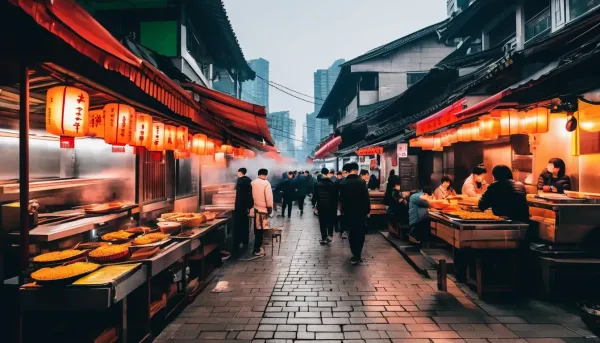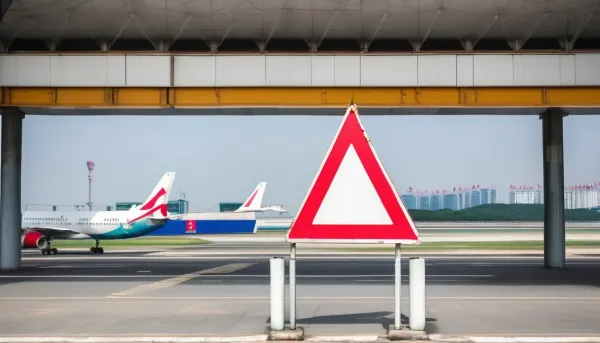Are China's Theme Parks Worth the Price? A Critical Look
China's theme parks offer world-class attractions but come with high costs and crowded conditions. International tourists should plan carefully, consider off-season visits, and explore local alternatives. Balancing expenses and experiences is key for a rewarding trip.

China has experienced rapid economic growth in recent decades, leading to a surge in domestic tourism. This growth has fueled the development of numerous theme parks across the country, such as Guangzhou Chimelong, Zhuhai Chimelong, Shanghai Disneyland, and Beijing Universal Studios. While these parks offer world-class attractions, many visitors have expressed concerns about their high ticket prices and in-park expenses.
High Ticket Prices and In-Park Spending
One of the most common complaints about China's theme parks is the high cost of admission. Compared to similar parks in other countries, the entrance fees for these Chinese destinations are often significantly higher. For instance, a one-day ticket to Shanghai Disneyland can cost several times more than a comparable ticket to Disneyland Paris. The price disparity is often attributed to the high operating costs and significant investments in state-of-the-art attractions and technology.
In addition to steep ticket prices, visitors to Chinese theme parks are likely to encounter high costs for in-park purchases. Food, beverages, and merchandise are often priced above market value, making a day at the park an expensive affair. This pricing strategy has led to accusations of price gouging, as visitors feel that they are being overcharged for basic necessities. For example, a bottle of water that might cost a few yuan outside the park could be double or triple the price within the park's boundaries.
Crowds and Congestion
Another issue that plagues China's theme parks is overcrowding. During peak seasons, these parks can become extremely crowded, with long lines for attractions and limited seating. The dense crowds can detract from the overall experience and make it difficult for visitors to enjoy the park's amenities. For instance, during the Golden Week holidays or summer vacation periods, the influx of tourists can make navigating through the parks a challenge, with wait times for popular rides extending to several hours.
Overcrowding is not only a matter of inconvenience but also a safety concern. The sheer number of people can make it hard to maintain personal space and manage children, adding stress to what should be an enjoyable outing. Furthermore, the congestion often leads to longer queues for restrooms and dining facilities, further diminishing the overall experience.
Reasons Behind the High Costs
Several factors contribute to the high prices at China's theme parks. First, land costs in China have risen dramatically in recent years, especially in major cities. This increase in land value is reflected in the construction and operating costs of theme parks. For instance, prime real estate in cities like Shanghai and Beijing comes at a premium, which directly impacts the financial planning and pricing strategies of theme park operators.
Second, the Chinese government has placed a strong emphasis on developing the domestic tourism industry, and theme parks are seen as a key component of this effort. This has led to increased competition among park operators, who may be willing to pay higher prices for land and permits to establish their presence in lucrative markets. The regulatory environment, while supportive of tourism development, also imposes certain costs related to compliance and standards that add to the overall expenses.
Furthermore, the cost of labor in China has been rising, particularly in urban areas. As theme parks require a large number of employees to operate efficiently, labor costs can represent a significant portion of their overall operating expenses. Employees are needed for a variety of roles, from ride operators and maintenance staff to entertainers and customer service representatives. Ensuring a high standard of service necessitates hiring well-trained personnel, which comes at a higher cost.
Finally, the desire to create world-class attractions has led park operators to invest in cutting-edge technology and elaborate theming. These investments can be costly and drive up ticket prices. For example, Shanghai Disneyland boasts technologically advanced rides like TRON Lightcycle Power Run, which require substantial investment in design, construction, and maintenance. Similarly, elaborate theming and immersive experiences, such as those found at Universal Studios Beijing, involve significant financial outlays that are ultimately passed on to visitors through higher ticket prices.
Implications for International Tourists
For international tourists planning a trip to China, the high costs associated with visiting theme parks may be a deterrent. While these parks offer unique and exciting experiences, the high ticket prices and in-park expenses can quickly add up, making them a less affordable option compared to similar parks in other countries. The financial burden of a family visit can be substantial, especially when considering the cumulative cost of tickets, meals, souvenirs, and other expenditures.
Moreover, the language barrier and cultural differences may pose additional challenges for international visitors. While major theme parks in China typically offer some services in English, the level of accessibility can vary. Navigating through the park, understanding safety instructions, and communicating with staff may require extra effort, potentially diminishing the overall enjoyment of the visit.
Tips for International Tourists
Despite the challenges, a visit to a Chinese theme park can be a memorable experience if planned carefully. Here are some tips to help international tourists make the most of their trip:
- Visit During the Off-Season: To avoid crowds and potentially lower prices, consider visiting China's theme parks during the off-season. The off-season typically includes periods outside of major Chinese holidays and school vacations. Visiting during these times can result in shorter wait times and a more relaxed experience.
- Purchase Tickets in Advance: Buying tickets online in advance can sometimes offer discounts and help you skip the lines. Many theme parks offer early bird specials or bundled packages that can provide savings. Additionally, purchasing tickets through authorized resellers or travel agencies can sometimes yield better deals.
- Bring Your Own Food and Drinks: Many parks allow visitors to bring their own food and drinks, which can help save money on in-park purchases. Packing snacks, water, and even a picnic lunch can significantly reduce expenses. Be sure to check the park's policy on outside food and beverages before your visit to avoid any issues at the entrance.
- Consider Local Alternatives: Explore smaller, locally-owned amusement parks that may offer a more authentic and affordable experience. These parks often have lower ticket prices and less crowded environments, providing a more enjoyable and budget-friendly option. Additionally, local parks can offer unique attractions and cultural experiences that may not be available in larger, international theme parks.
- Set a Budget: Before visiting a theme park, determine how much you are willing to spend and stick to your budget. Consider all potential expenses, including tickets, food, souvenirs, and transportation. Having a clear budget can help you manage your spending and avoid overspending.
- Research and Plan: Familiarize yourself with the park layout, attractions, and amenities before your visit. Planning your route and prioritizing must-see attractions can help you make the most of your time in the park. Utilize park maps, mobile apps, and online resources to gather information and plan your day effectively.
- Leverage Technology: Make use of technology to enhance your theme park experience. Many parks offer mobile apps that provide real-time information on ride wait times, show schedules, and dining options. These apps can help you navigate the park efficiently and optimize your visit.
- Stay Hydrated and Comfortable: Theme park visits often involve long hours of walking and standing, so it's essential to stay hydrated and comfortable. Wear comfortable clothing and footwear, and take regular breaks to rest and recharge. Bringing a refillable water bottle can help you stay hydrated throughout the day.
Exploring Beyond the Theme Parks
While theme parks are a major attraction, China offers a wealth of other cultural, historical, and natural sites that are worth exploring. International tourists can enhance their travel experience by including some of these destinations in their itinerary:
- Historical Landmarks: China is home to many historical landmarks, such as the Great Wall, the Forbidden City, and the Terracotta Army. Visiting these sites can provide a deeper understanding of China's rich history and cultural heritage.
- Natural Wonders: From the picturesque landscapes of Guilin and Zhangjiajie to the serene beauty of Jiuzhaigou and Huangshan, China boasts a diverse range of natural wonders. Exploring these areas can offer a refreshing contrast to the hustle and bustle of theme parks.
- Cultural Experiences: Immerse yourself in Chinese culture by attending traditional performances, visiting local markets, and participating in cultural festivals. Engaging with local traditions and customs can provide a more enriching and authentic travel experience.
- Culinary Delights: China is renowned for its diverse and flavorful cuisine. Take the opportunity to sample regional dishes and street food, and consider joining a cooking class to learn how to prepare traditional Chinese dishes.
Final Thoughts
China's theme parks are undeniably impressive, offering world-class attractions and experiences. However, the high ticket prices and in-park expenses, coupled with overcrowding, can detract from the overall enjoyment. For international tourists, careful planning and budgeting are essential to make the most of a visit to these parks.
While theme parks provide unique and memorable experiences, it's important to weigh the costs and consider whether the expense aligns with your travel goals and budget. By being mindful of these factors, you can decide if a visit to one of China's theme parks is truly worth the price.
Ultimately, the decision to visit a Chinese theme park should be based on your interests, priorities, and financial considerations. If you choose to visit, taking advantage of tips and strategies to manage costs and enhance your experience can help you make the most of your trip. Additionally, exploring other aspects of China's rich cultural and natural heritage can provide a well-rounded and fulfilling travel experience.
China offers a wealth of attractions and experiences beyond its theme parks, and by planning carefully and exploring a variety of destinations, international tourists can enjoy a rewarding and unforgettable journey in this diverse and dynamic country.



